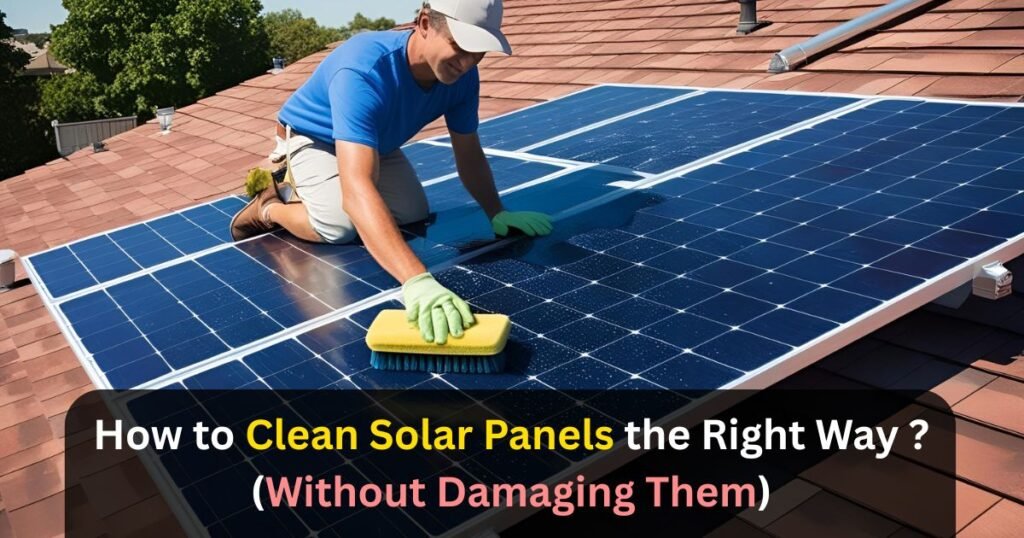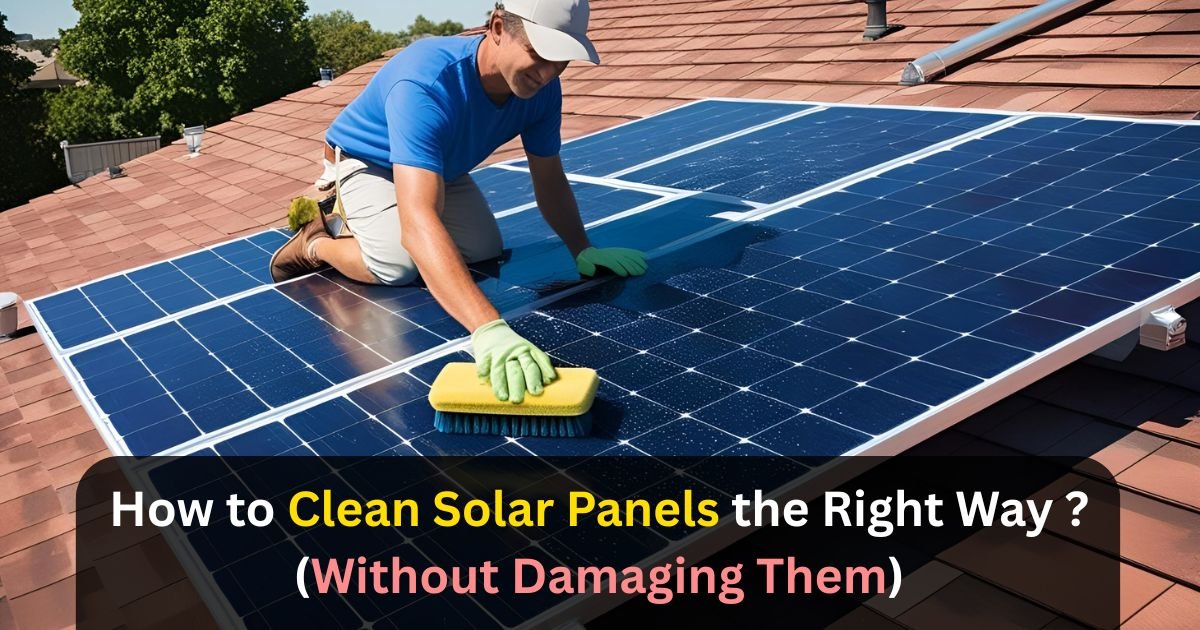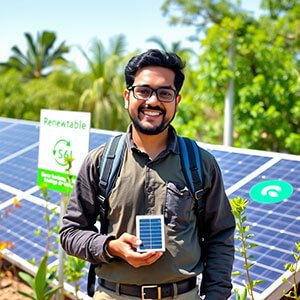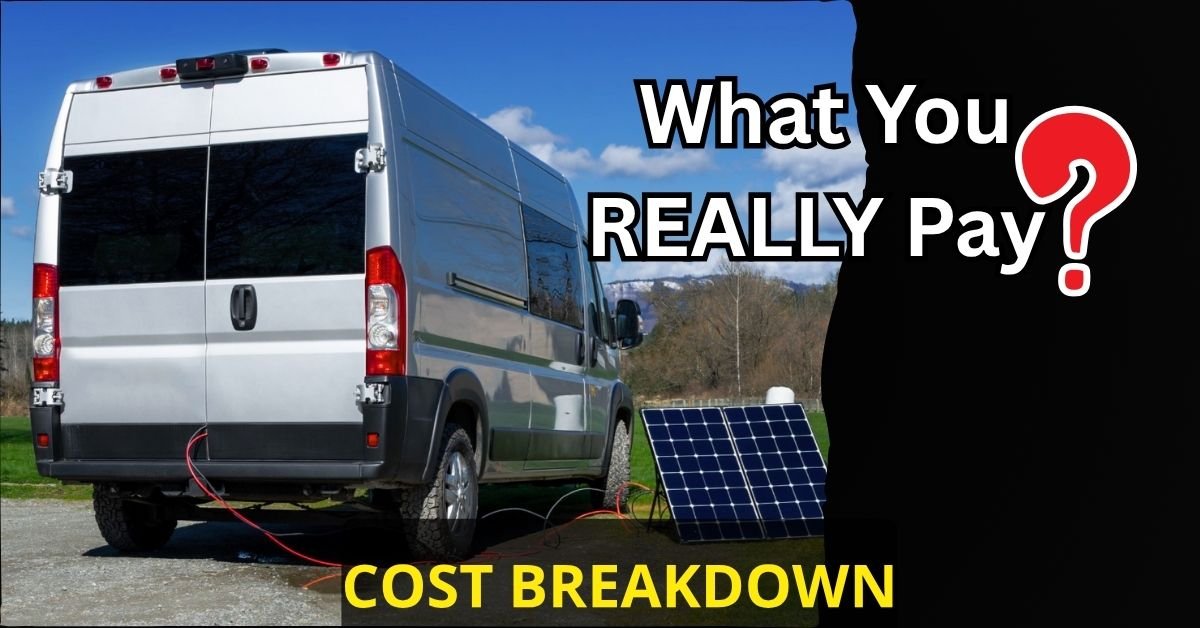Solar panels are an incredible investment for your home or business, offering clean energy and long-term savings. But like any valuable asset, they require a little TLC to perform at their best. Over time, dirt, dust, pollen, bird droppings, and other debris can accumulate on the surface of your panels, reducing their efficiency and costing you money. The good news? Cleaning your solar panels is simple, safe, and effective with the right approach.
You can read: Solar Panels vs Solar Shingles: Which One Should You Choose?
In this guide, you’ll learn how to clean solar panels properly so they can continue to use the sun’s power efficiently.
Why Cleaning Solar Panels Is Important
Clean solar panels work better. It’s that simple. Dust, bird droppings, pollen, and leaves can block sunlight, reducing the efficiency of your panels by up to 25% in some cases.
Key benefits of regular cleaning:
- Improved efficiency: More sunlight reaches the cells.
- Longer lifespan: Less strain on the system.
- Return on investment: Higher energy output = lower utility bills.
- Aesthetic value: Cleaner panels look better, especially on rooftops.
If you’re not seeing the savings you expected, your panels might need a good wash.
How Often Should You Clean?
The frequency of cleaning depends on several factors, including your location, weather conditions, and the surrounding environment. Here’s a quick summary:
The ideal cleaning frequency depends on your location:
- Dusty or dry climates (Arizona, Nevada): Every 2-3 months.
- Moderate climates (California, Florida): Every 4-6 months.
- Rainy regions (Pacific Northwest, UK): Let rain do most of the work; inspect every 6 months.
General guidelines:
- Urban or suburban areas: Every 6-12 months.
- Near farms or factories: Every 3-6 months due to more debris.
- Dry, dusty regions: Quarterly or more often.
- After storms or wildfire season: Clean off ash, soot, and residue.
Monitor your energy production. If it drops unexpectedly, it might be time for a cleaning.
Pro Tip: Check after storms, heavy pollen seasons, or if you notice a drop in energy production.
Note: Always check your manufacturer’s guidelines for specific cleaning recommendations.
Tools Needed for Safe Solar Panel Cleaning
You don’t need fancy equipment, just these essentials:
✅ Soft brush or squeegee (non-abrasive to avoid scratches)
✅ Garden hose with a spray nozzle (avoid pressure washers)
✅ Mild soap or solar panel cleaner (no harsh chemicals)
✅ Distilled water (if you have hard water to prevent mineral deposits)
✅ Safety gear (ladder, harness if on a roof, rubber-soled shoes)
Avoid anything abrasive like steel wool or harsh chemicals. These can scratch the glass and reduce efficiency.
Such as:
❌ Pressure washers (can crack panels)
❌ Abrasive sponges or steel wool
❌ Bleach or ammonia-based cleaners
How to Clean Solar Panels the Right Way
Cleaning solar panels doesn’t have to be complicated. Follow these steps to ensure a thorough yet safe cleaning process.

Step-by-Step Cleaning Process
- Turn Off the System
Safety first! Before cleaning, turn off your solar panel system to avoid electrical hazards. - Inspect the Panels
Look for cracks, loose wires, or other signs of damage. Address these issues before proceeding. - Rinse with Water
Using a garden hose, gently rinse off loose dirt and debris. Avoid high-pressure jets as they can damage the glass surface. - Apply Soap Solution
Mix mild soap with water in a bucket. Dip your soft brush or sponge into the solution and gently scrub the surface. - Wipe Down
Use a microfiber cloth to remove any remaining streaks or soap residue. Ensure the panels are completely dry afterward. - Check Your Work
Inspect the panels under direct sunlight to confirm they’re sparkling clean and free of smudges.
What NOT to Do
While the cleaning process seems straightforward, certain mistakes can lead to costly repairs. Avoid these common pitfalls:
- Don’t Use Harsh Chemicals: Abrasive cleaners can scratch the glass and degrade anti-reflective coatings.
- Avoid Pressure Washers: High-pressure water streams can crack the panels or force water into sensitive components.
- Never Climb Without Safety Gear: If your panels are on the roof, hire professionals unless you’re confident in your safety measures.
❓ FAQs About Cleaning Solar Panels
Q: How do I know if my panels need cleaning?
A: Check your energy output; if it drops by 10% or more, it’s time to clean.
Q: Can I clean solar panels myself, or should I hire a professional?
A: Both options work! DIY cleaning is cost-effective and easy if you follow proper techniques. However, hiring a professional ensures expertise, especially for hard-to-reach installations.
Q: Is it okay to clean solar panels during winter?
A: Yes, but take precautions. Snow can usually slide off naturally, but ice buildup may require careful removal using warm water.
Q: Will rain clean my solar panels for me?
A: Rain helps wash away some dirt, but it won’t eliminate stubborn residues like bird droppings or mineral deposits.
Q: Are there eco-friendly ways to clean solar panels?
A: Absolutely! Stick to biodegradable soaps and minimal water usage to reduce environmental impact.
Q: What’s the best time of year to clean them?
A: Spring and fall are ideal, with moderate temperatures and reduced debris.
Q: Will cleaning void my warranty?
A: Only if you use improper methods. Stick to gentle, non-abrasive cleaning and follow your manufacturer’s guidelines.
You can read: How to Build a Small Solar System for a Cabin (Best Off-Grid Way).
The Ending Request!
Cleaning solar panels is simple, cost-effective, and crucial for peak performance. By following these steps, you’ll protect your investment and maximize energy savings.
See the Latest Price of Solar Panel Cleaning Equipment!
📢 Have questions or tips on solar panel maintenance? Share your thoughts in the comments below! And if you found this guide helpful, pin it for later or share it with fellow solar owners!












